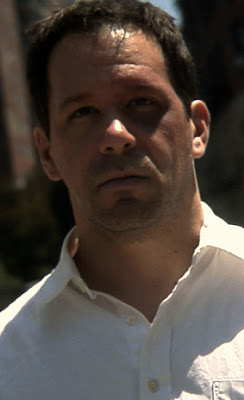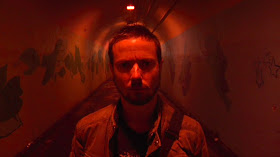One festival ends, another begins -- the very next day. Just as the 2010 New York Film Festival closes up shop till next year, Monday, October 11, will see the return to Brooklyn (this time at the Knitting Factory in Williamsburg) of the Royal Flush Festival, (named after Royal Flush magazine) with its line-up of, shall we say, not-exactly-mainstream film, music and art. Eclectic, adventuresome and different, Royal Flush events run through October 18 and range from new independent narrative and documentary films (plus plenty of shorts!) to scads of live music (Dungen, The Growlers, Rasputina and more) and in-person appearances from the likes of Rob Zombie (who will making his tomorrow, Monday, Oct. 11 at 6pm at Forbidden Planet in Manhattan). Plus -- are your ready? -- the single 2010 performance of Kaiju Big Battel (billed as the world's only live, monster fighting spectacle -- but really, what would we do with a second one?).
The schedule for Royal Flush's live entertainment -- and there's a lot of it -- can be found here. The part that most interests TrustMovies, of course, is the fest's brave and bizarre little film program, the likes of which you won't find duplicated anywhere else. Opening night of the RF film series will see the screening of Shan Nicholson's DOWNTOWN CALLING, a documentary narrated by Deborah Harry about the emergence, during New York City's economically downtrodden 1970s, of the new "downtown culture."
While everything on the program sounds worth a watch, one film in particular grabbed my attention because it was made by a relatively new filmmaker named Dan Eberle (shown below and at bottom), whose earlier movie The Local, I had seen and covered last year (that review is here). While I wasn't all that fond of The Local, I did think Eberle exhibited talent as an actor and maybe had possibili-ties as a filmmaker. I am happy to report that his latest, PRAYER TO A VENGEFUL GOD is a much more impressive piece of movie-making. With it, he takes a major risk that, for the most part, pays off.
In The Local, it seemed to me that Eberle's dialog (the actor both directs and writes his films) walked a too-thin line between stylization and camp. Well, in his new film, he's solved that problem. There is no dialog. None at all. I apologize for dropping this bombshell, because, though the no-dialog idea sounds like simply a stunt, it is handled so well for so long a time, that if you didn't know that this was the case, for awhile, at least, you might not even realize it. If the film finds some limited theatrical release -- which it deserves -- this will probably, and somewhat unfairly, be due to news of this dialog-free gimmick, which may become the primary reason audien-ces decide to see it. (This is not the first-time a no-dialog "thriller" has appeared -- 1951s The Thief is one such -- but it's very rare.)
Prayer begins with oddly disconnected shots of what looks like a kind of wild man (a strange and memorable performance by the late Paul James Vasquez, above). Then we're in a hospital, flashing back to the scene of an impending murder. Dialog is not necessary here; the lack of it, in fact, increases our suspense while keeping us focused on what's going on visually.
I would guess that for maybe 20 to 30 minutes of the film, we don't need that dialog and so don't even pay much attention to the lack of it. By the time we realize what's going on, Eberle has us hooked. On the basis of his two films so far, it would appear that this film-maker prefers simple plots set in decaying urban areas full of drugs, dirt, sex and violence. (Prayer, at least, offers one clean, high-end apartment among its sets.) Because of the relatively simple plot -- crime, rehabilitation, vengeance -- the lack of dialog does not interfere (it may actually help) the telling of the story.
No dialog, by the way, does not mean no sound: There's plenty of ambient noise throughout, and the characters themselves even cough, choke, mutter and mumble now and again. As director, Eberle gets good performances from everyone, though each character is pretty much a single-note cliché: the lost love-object wife (Jennifer Farrugia, shown two photos above), the homeless waif who helps our hero (Jillaine Gill), the nasty drug kingpin, his sleazy underling (Beau Allulli, above). Other than the aforemen-tioned Mr. Vasquez, only the wife's best friend (Leah Rudick, below) torn between responsibility and friendship, having some fun and getting too much, is allowed a character possessing complexity.
Yet these simple characterizations work well enough within the framework, and Eberle manages to bring the 93-minute movie home. I could have done without so many walks through that red-lighted tunnel (Mr. Allulli is seen traversing it, two photos above), and I also didn't buy the "surprise" ending (in terms of character believability), but I admit that at least it's a surprise -- and some fun. As is the movie in general -- which may give young filmmakers a whole new concept: If you're not great with dialog (but can't afford a crack writer), just dispense with it and see what happens.
Prayer to a Vengeful God plays one time only during the Royal Flush fest, at the Knitting Factory (where all the fest's film programs will screen): Thursday, October 14, at 7pm.









No comments:
Post a Comment